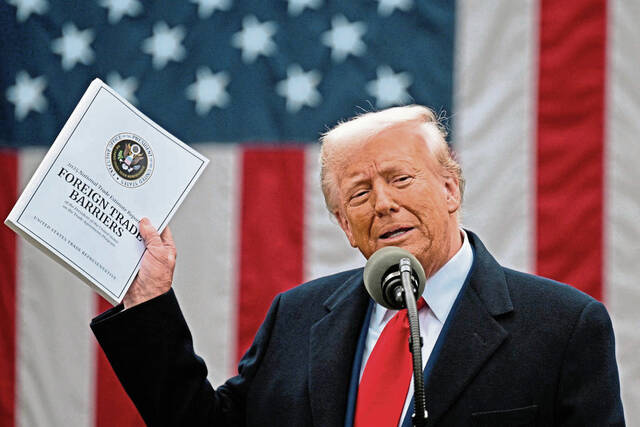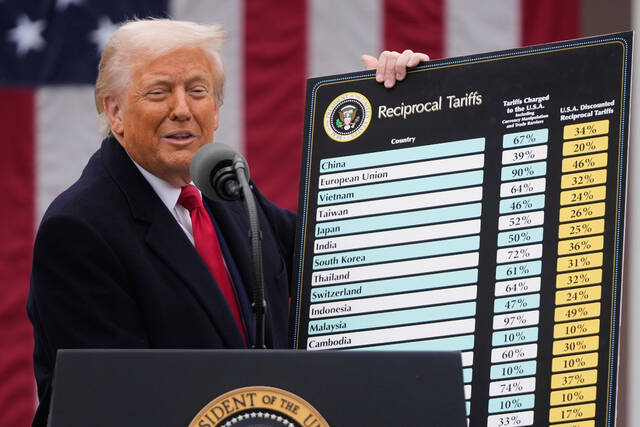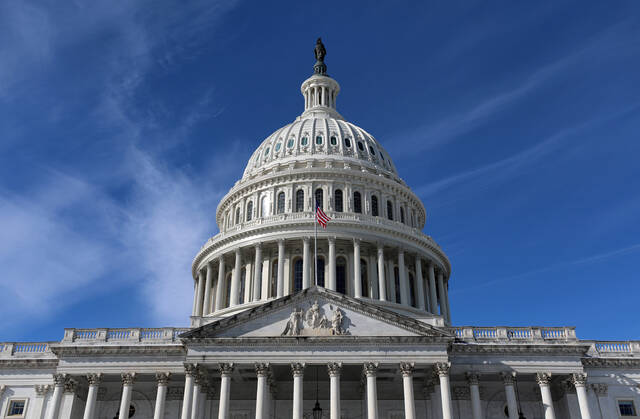The most important decision any political leader can make is about the constitutional structure of our government. Those decisions are best made calmly, deliberately and with a focus on the long-term good of our political community. Poor ones are most likely to be made in a rush, in anger and in response to short-term difficulties.
Unfortunately, a Republican proposal to change how we elect justices of the Pennsylvania Supreme Court and judges of the commonwealth and Superior courts is going before the Senate this week in anger and resentment at recent Supreme Court rulings. Republicans are upset that the Supreme Court rebuffed its attempt to deny Gov. Tom Wolf an opportunity to veto their concurrent resolution ending the covid-19 state of emergency, even though the Pennsylvania Constitution plainly requires it.
A critical feature of the Constitution of the United States — and the constitution of every one of the 50 states — is the checks and balances. The idea that the powers of government should be divided among different institutions whose members are chosen independently of one another is central to American constitutional thought and practice.
That’s why the Republican constitutional amendment is so troubling. Currently, these justices and judges are elected statewide as the state Constitution prescribes. The proposed amendment would call for them to instead be elected by regional election districts drawn by the General Assembly.
This proposal threatens the independence of the Supreme Court and other appellate courts in two ways. One problem is that district lines drawn by the Legislature would likely be gerrymandered — that is, drawn to ensure that one party controls a majority of seats on each court. Just as they do in drawing legislative districts, the party that controls the legislature would pack voters of the other party into a limited number of districts, creating a majority of districts likely to elect justices or judges from their own party.
Even worse, the General Assembly could target particular justices and judges for reprisal in the transition from statewide election to election by regional district and any time they were moved to redraw district lines.
Suppose, for example, that legislators disapproved of a decision made by Supreme Court justice David N. Wecht who lives in Allegheny County and is up for a retention election in 2026. The General Assembly could decide that in the transition to regional elections a new judicial district would be created that year centered on Wilkes-Barre. That would, in effect, force Wecht to either retire or move to Northeast Pennsylvania to run for reelection.
The mere threat of drawing judicial district lines in these politically charged ways would deeply damage the independence of our courts. And it is precisely to avoid gerrymandering of judicial elections that the majority of the states that elect judges do so in statewide, not regional, districts.
Haste and anger not only explains why a proposal so contrary to our traditions in America and Pennsylvania is even being considered, but also why the putative justifications for it are so weak.
Republicans say that we need geographic diversity on the courts. But this is a solution looking for a problem. The current justices and judges on our appellate courts grew up in many counties and in a number of states.
In addition, the courts have a different function than the Legislature. Their aim is to interpret the Constitution and laws of Pennsylvania fairly, not to represent the views of the voters either as a whole or in part. There is no Lehigh County way or Forest County way to interpret the Constitution and statutes of Pennsylvania. That the Republican proponents of this amendment put forward this argument shows that they are forgetting the very purpose of the judicial power.
Indeed, the other reason that states that elect judges don’t do so in regional districts is that they want to put the best qualified lawyers on the bench. While our judges and justices are born and raised all over the state, many do work as appellate court lawyers in the law firms located in our major cities or serve in the many local courts found in them. That is the kind of experience we want on the courts.
Political pique at particular decisions by the courts is not only the worst possible reason to change our Constitution but shows exactly why we need independent courts to serve as a check on the General Assembly. It is short-sighted as well. Republicans are not likely to control the General Assembly forever. Democrats wouldn’t be likely to control the Supreme Court forever — and the Democratic court justices already exercise independent judgment rather than vote as a bloc. If the Republican proponents of this constitutional amendment exercised some forethought, they would realize that someday they may look to the courts to stop actions taken by a General Assembly controlled by Democrats.
That is why any of us, Democrat or Republican, who stops and thinks about this proposal will recognize that a constitutional amendment that threatens the independence of the Courts is not in our long-term interest.
Marc Stier is director of the Pennsylvania Budget and Policy Center.








